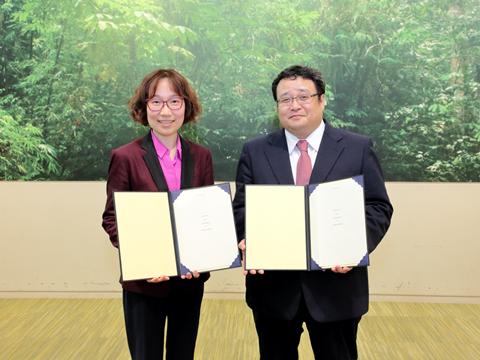
Neste and Mitsubishi Corporation have entered a strategic partnership seeking to develop value chains for renewable chemicals and plastics for Japanese brands – an effort hoped to defossilize supply chains in the food and beverage, apparel, and consumer electronics sectors.
Each partner is expected to offer its own benefits – Neste’s knowledge of sustainability-minded materials and practices, and Mitsubishi Corporation’s experience in business development and supply chain management for petrochemical products and derivatives. Their combined efforts are set to provide Japanese brands with ‘comprehensive’ solutions for lowering their greenhouse gas emissions and reducing their reliance on fossil resources across their supply chains.
The cooperation will also involve the use of Neste RE, described as a biobased, renewable raw material for use in the production of plastics.
“Through this partnership, we will be able to provide sustainability-minded companies in Japan with a full package to reduce their plastics-related GHG emissions,” says Carrie Song, senior vice president, Commercial at Neste Renewable Products. “Together, we can provide the materials and the know-how.
“Together, we can also get the materials into the value chains, making it easier for companies to make the switch to more sustainable solutions.”
“Our strength lies in our capability to establish supply chains and access a wide variety of brand owners in Japan,” adds Yoshiyuki Watanabe, division COO, Business Development Div. at Mitsubishi Corporation. “We have cultivated this strength over many years through traditional trading and strategic investments in collaboration with trusted partners.
“Recognizing that these achievements cannot be made alone, we are eager to strengthen our relationship with Neste. We are thrilled to expand our network to include partners who share similar values, thereby generating economic, societal and environmental benefits to meet the needs of society.”
Looking ahead, Neste and Mitsubishi Corporation anticipate an ‘early realization of a defossilized society in the materials sector’ and hope to continue driving the switch from fossil plastics to renewable alternatives.
The partners’ past projects include a collaboration between Mitsubishi Corporation, Suntory Holdings Limited, and ENEOS Corporation to build a supply chain for PET bottles derived from biomass using a mass balance approach. By producing PET resin from Neste RE feedstock, the companies anticipated that Suntory could start manufacturing PET bottles from biobased sources in 2024 – aiming for a low-carbon, fossil-free production process.
In another instance of providing Neste RE for industrial use, Neste has partnered with South Korean chemical company Lotte Chemical to replace fossil resources with renewable raw materials in chemical and plastic manufacture. This is expected to result in a lower carbon footprint compared to fossil-based plastics.
If you liked this story, you might also enjoy:
How are the top brands progressing on packaging sustainability?
Sustainable Innovation Report 2024: Current trends and future priorities
Reuse vs. single use – which is better for the environment?
The ultimate guide to global plastic sustainability regulation













No comments yet